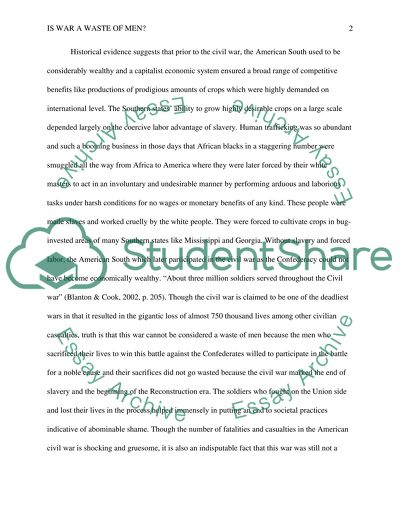Cite this document
(“Is war a waste of men Essay Example | Topics and Well Written Essays - 3000 words”, n.d.)
Retrieved from https://studentshare.org/literature/1403385-is-war-a-waste-of-men
Retrieved from https://studentshare.org/literature/1403385-is-war-a-waste-of-men
(Is War a Waste of Men Essay Example | Topics and Well Written Essays - 3000 Words)
https://studentshare.org/literature/1403385-is-war-a-waste-of-men.
https://studentshare.org/literature/1403385-is-war-a-waste-of-men.
“Is War a Waste of Men Essay Example | Topics and Well Written Essays - 3000 Words”, n.d. https://studentshare.org/literature/1403385-is-war-a-waste-of-men.


